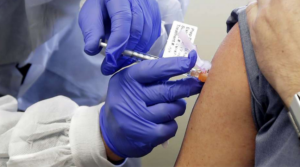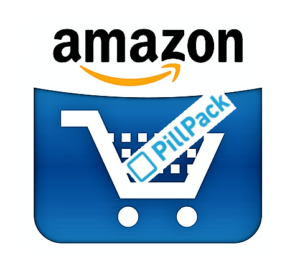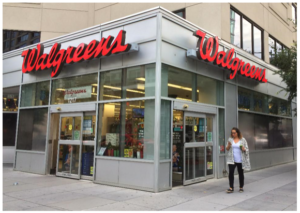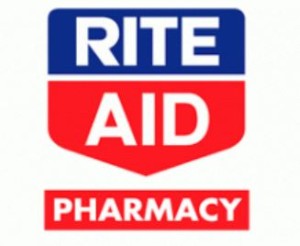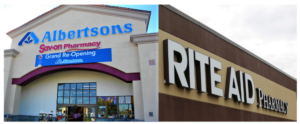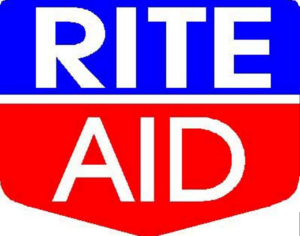- With vaccines in more stores, pharmacies go on hiring spree (pharmacist.com)
Dozens of pharmacy chains and grocery stores with pharmacy counters are slated to start offering COVID-19 vaccinations this week, creating a wealth of employment opportunities. The companies are vying with one another—offering lucrative signing bonuses, in some cases—to hire established pharmacists, pharmacy technicians, student pharmacists, nurses, and other help. CVS Health is working toward 15,000 new vaccine-related hires, Walgreens has targeted 9,000, Kroger plans to recruit nearly 1,000 health care workers, and Rite Aid is looking to fill more than 2,000 pharmacy jobs...READ MORE
- Amazon Buys PillPack: Six Pharmacy and Drug Channel Implications (drugchannels.net)Why Amazon’s Push Into Prescription Drugs Isn’t a Guaranteed Success (nytimes.com)Amazon could start selling discounted meds to cash payers as soon as the PillPack deal closes (cnbc.com)
Amazon has entered the pharmacy business with its acquisition of PillPack, a small mail pharmacy. Consider this move to be the end of the beginning for the pharmacy industry's evolution...The stock prices of pharmacies and pharmacy benefit managers predictably plunged...This is a small first step that will let Amazon begin growing a pharmacy dispensing business...We are still a long, long way from a fundamental restructuring of the complex U.S. drug channel. The incumbents still have opportunities to defend their position, capture value from internet technologies, and streamline distribution...
OBSERVATIONS- Amazon has made a small, partly defensive move into pharmacy dispensing.
- Amazon now has a turnkey platform for disrupting the cash-pay prescription business.
- Amazon can reinvent consumer perceptions of non-store pharmacy dispensing.
- PBMs face the prospect of disruption to their long-favored network strategies.
- Amazon still lacks a specialty pharmacy solution—and may not want one.
- The deal is good news for vertical integration.
- Rite Aid Says It’s Halfway Home On Store Transfers To Walgreens (forbes.com)
Rite Aid...has now transferred 1,114 stores to Walgreens Boots Alliance as part of a larger deal with the nation’s largest pharmacy chain...In all, Walgreens will over the next few weeks buy 1,932 stores and three distribution centers from Rite Aid for nearly $4.4 billion in cash. Rite Aid...has received “cash proceeds of $2.424 billion, which the company continues to use to reduce debt.”...Before agreeing in September to buy 1,932 Rite Aids, Walgreens had been trying to buy all of Rite Aid before antitrust scrutiny from the Federal Trade Commission that ultimately led to the deal’s undoing...As a smaller pharmacy chain, Rite Aid is focusing on eight states largely on the East and West Coats with plans to invest heavily in its pharmacy benefit manager EnvisionRx, which works with employers and government health programs like Medicare to better control drug costs. PBMs are the middlemen between drug makers and patients when it comes to buying prescription drugs and getting discounts for their customers.
- Walgreens, Rite Aid amend deal to $7 per share, extend end date (drugstorenews.com)
Walgreens Boots Alliance and Rite Aid on Monday morning extended their previously announced definitive merger agreement under which Walgreens Boots Alliance will acquire all outstanding shares of Rite Aid...The retail pharmacy operations also restructured a new deal that would value Rite Aid at between about $6.8 billion and $7.4 billion, depending on required store divestitures, down from an initial acquisition cost of $9.4 billion...Under the terms of the amendment, the parties have agreed to reduce the price for each share of Rite Aid common stock to be paid by Walgreens Boots Alliance...price will be a maximum of $7 per share and a minimum of $6.50 per share...Walgreens Boots Alliance will be required to divest up to 1,200 Rite Aid stores and certain additional related assets if required to obtain regulatory approval...
- If you’ve got it, flaunt it: Rite Aid’s Store of the Future puts pharmacists front and center (drugstorenews.com)
Jocelyn Konrad, Rite Aid’s executive vice president and chief pharmacy officer, said the mission of RxEvolution and the new store format is to unlock the value of its pharmacists to support its customers and communities...“The Store of the Future highlights the RxEvolution strategy as the whole store is reimagined and remodeled,” she said. “Whether it be the front-end merchandise and, in particular, the way we have reintroduced the pharmacist to our customers in a very different way that has never been done before. Historically, the industry kept that pharmacist back in the production end of the pharmacy and what we have literally done is pulled that pharmacist out to be front and center for our customers, so there’s always a connection every time the customer is in our stores.”...READ MORE
- Amazon shakes up drugstore business with deal to buy online pharmacy PillPack (cnbc.com)
Amazon is acquiring online pharmacy PillPack in a deal that is already shaking up the drugstore industry...The move is the strongest indication yet of Amazon's intent to push further into the health-care industry. It threatens to remove one of the few distinguishing factors pharmacy chains have relied on to fend off Amazon, the sale of prescription drugs. Retailers like Walgreens Boots Alliance, CVS Health and Rite Aid have seen their so-called front of store sales threatened as shoppers increasingly buy household staples online or from convenience stores...PillPack, which organizes and delivers packages of medications for consumers, is licensed to ship prescriptions in 49 states...Terms of the deal with Amazon were not disclosed, though people familiar with the matter told CNBC that Amazon paid roughly $1 billion. The companies expect it to close during the second half of the year...
- Walgreens, Rite Aid end $9.4 billion merger (pharmacist.com)
Walgreens Boots Alliance and Rite Aid have called off their $9.4 billion merger agreement. Instead, Walgreens says it will attempt to purchase one-half of Rite Aid's stores for $5.18 billion in cash. Executives said they crafted the smaller deal to address regulatory issues, but antitrust experts said it does not eliminate competition concerns. The Federal Trade Commission's review of the original Walgreens-Rite Aid transaction stretched 18 months, and the commission reportedly did not back away from concerns that the deal would have harmed competition. The commission worried about the merger's impact in regions where both companies have a strong store presence...Walgreens...said the smaller transaction addresses "all substantive" FTC concerns. The company will be adding stores in regions where it currently lacks a large presence, including the Northeast and MidAtlantic..."There's a chance that it won't go, that's the reality of the process. We believe it makes sense, we just have to wait until it plays out."
- Albertsons, Rite Aid terminate merger (drugstorenews.com)Rite Aid, Albertsons Call Off Merger Amid Investor Opposition (wsj.com)
Albertsons and Rite Aid on Wednesday evening announced that they had mutually decided to terminate the proposed merger...The termination came a day before Rite Aid was set to hold a special shareholders meeting at which the company has been urging its shareholders to vote in favor of the merger...“Albertsons believes that the strategic rationale of the Rite Aid combination was compelling, including the $375 million of cost synergies and $3.6 billion of identified revenue opportunities,” Albertsons said. “We disagree with the conclusion of certain Rite Aid stockholders and third-party advisory firms that although they acknowledged the strategic logic of the combination, did not believe that Albertsons was offering sufficient merger consideration to Rite Aid stockholders.”...Rite Aid chairman and CEO John Standley said that despite believing in the merits of the merger, it had listened to its stockholders and has committed to moving forward as a standalone company...
- Amid Opposition, Rite Aid Issues Shareholder Plea To Vote For Albertsons Deal (forbes.com)
Rite Aid executives issued an unusually lengthy plea for shareholders to vote in favor of its merger with Albertsons amid opposition by some investors who’ve been trying to derail the deal...Before shareholders is a $24 billion merger with grocery store giant Albertsons announced in February that would result in Rite Aid shareholders owning about 30% of the combined new company. The combination of Rite Aid, which operates RediClinic, and Albertsons would create a company with 319 health clinics and 4,345 pharmacies after the merger closes...Some investors were upset that senior executives will be paid retention bonuses even if the deal falls through. Others were upset that Rite Aid isn’t getting a higher price, especially as pharmacy benefit managers are suddenly an acquisition target and shareholders see value in Rite Aid’s PBM, EnvisionRxOptions, which has been growing rapidly...
- Profits in the 2017 Fortune 500: Manufacturers vs. Wholesalers, PBMs, and Pharmacies (drugchannels.net)
Time for my annual review of the Fortune 500 list. Every year, this is one of my most popular posts, because it helps us "follow the dollar" and understand how drug channel intermediaries make money...The 2017 list contains the same seven drug channel companies that the 2016 list did: AmerisourceBergen, Cardinal Health, CVS Health, Express Scripts, McKesson, Rite Aid, and Walgreens Boots Alliance...Using the Fortune data, I explore the profitability and shareholder returns of the largest public drug wholesalers, chain pharmacies, and pharmacy benefit managers. I compare these companies with the Fortune 500’s ten pharmaceutical manufacturers and a separate survey of independent pharmacies...The Fortune data remind us that many multi-billion dollar businesses profit as drugs move through the U.S. reimbursement and distribution system. We must recognize this complex system in order to tackle the price and affordability of drugs.
- OBSERVATION #1: Drug channel companies are MUCH bigger than manufacturers.
- OBSERVATION #2: Drug channels companies have much lower return on sales.
- OBSERVATION #3: When measured by Return on Assets, drug channels companies’ profitability looks much better.
- OBSERVATION #4: Independent pharmacies’ profitability is comparable to that of the largest public drug channel companies.
- OBSERVATION #5: In 2016, investors earned very poor returns both from drug channel companies and manufacturers.

